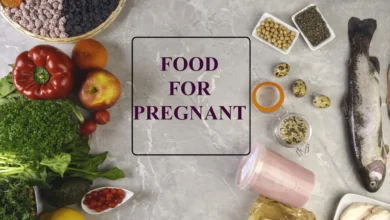The concept of postpartum doulas has gained in popularity over the past few years. It was previously considered a niche or unusual service. A few decades ago, hiring a doula for a postpartum was something that only privileged families or those with “alternative values” would do. It was almost a luxury reserved for those who wanted more than the traditional system of support after childbirth. The term “postpartum” was not widely used, and people thought that the services provided by a doula were unnecessary or something only certain groups of people could afford.
As societal norms surrounding parenthood changed, knowledge of early childhood development, the well-being of families, and postnatal care’s importance grew, the postpartum role has been more widely recognized and celebrated. The services of a doula for new parents are increasingly recognized as an important part of helping them adjust to life’s changes after the birth of their child. A postpartum doula’s role has evolved into an important piece in the puzzle of maternal health, family dynamics and emotional well-being.

It is becoming more and more apparent that having the right support following a birth, both in terms of physical recovery as well as emotional and mental well-being, is important. The growing awareness of the challenges new parents face, particularly in the first few months, has led to an increase in the demand for postpartum care. Growing awareness about the importance of both paternal and maternal leave, a better work-life equilibrium, and the emotional support parents need have pushed the role of a postpartum doula to the forefront of family health and parenting conversations.
The postpartum period can be difficult for families, particularly because babies are so immature compared to other animals. She says that babies are immature in comparison to other mammals. They go through a great deal of development during the first three months. She continues to explain that during the first twelve weeks of a child’s life, they reach significant developmental milestones, which can lead to a more relaxed baby as they develop. This critical period is when many issues that new parents encounter, like colic, reflux and sleep disturbances, start to improve. It’s a transformative time for families. This period is often called the “fourth trimester” and marks a significant transition for both parents and babies.
Years of experience have allowed a postpartum doula to work with families at various stages of adjustment following childbirth. She is a parent who understands the dynamic of early parenting and how postpartum experiences can affect both parents as well as children in the long term. She has seen first-hand, through her work, the impact a postpartum ‘doula’ can have on families in transition. They receive crucial support during a time of stress and confusion for parents.

What Led You to Become a Postpartum Doula?
She cites her own experience with childbirth and postpartum as the reason for her decision to become a postpartum Doula. “My postpartum and birth experiences!” She says. “I had doulas during the birth of my children and I was able to receive support from them throughout my pregnancy and afterward. This made a big difference for me and my family.” She says that she knows first-hand how valuable it is to have someone at your side for one of the most important experiences in your life.
She became a postpartum doula because she wanted to help others in this vulnerable and transformative period. She explains that “our society is fragmented more than ever” and becoming a parent is a profound, tender time. It is important to fill the gap in support, knowledge, and connection for families. I am proud to be a part of this.
What is the Difference Between a Postpartum Doula and a Birth Doula or Midwife?
Understanding the differences between a postpartum midwife and a birth midwife is important. These roles may be interconnected, but they have different focuses and expertise.
A midwife is an experienced medical professional who provides care to women during pregnancy, childbirth, and the postpartum period. They are primarily responsible for medical care and monitoring both mother and child’s health. They also provide postpartum care that includes monitoring for physical complications and assisting with recovery.
A birth doula, on the other hand provides physical and emotional support during labor and childbirth. Birth doulas ensure that women feel empowered, informed and supported during the entire labor process. Birth doulas offer comfort measures such as massage, breathing techniques and positioning and help birthing people and their partners communicate their needs to medical staff.
A postpartum care doula, on the other hand, is focused on helping families after birth. A postpartum doula offers emotional, physical and practical support to families as they adjust to parenthood.
What Services do Postpartum Doulas Provide?
Postpartum doulas can offer a wide range of services, depending on what the family needs. The primary purpose of a doula after childbirth is to provide both practical and emotional support. Postpartum doulas offer a variety of services.

- Support for Parents and Care of the Newborn: Offering breaks to parents, so that they can take a break, rest, shower or attend to personal needs.
- Housework Light: Helping with laundry, cleaning dishes, and tidying up.
- Meal preparation: Ensure that new parents can prepare nutritious meals.
- Breastfeeding Support and Feeding: Guides breastfeeding technique, bottle-feeding routines, and managing challenging feeding situations.
- Reassurance and Emotional Support: Listening to parents and helping them process their emotions.
- Baby Sleep Support: Helping families establish healthy sleep routines.
- Connecting and Building Community: Offer a sense of support and understanding in the postpartum phase.
Why Postpartum Support Is So Important
Postpartum is a period of great change for not only the mother and baby, but also for the whole family. Physical demands of childbirth combined with emotional intensity can be overwhelming. A postpartum doula’s support can be invaluable. She provides families with the resources and emotional support they need to feel confident.
A postpartum doula is a vital guide for families during this time of transition. They can offer emotional support, help with baby care and provide hands-on assistance. Postpartum doulas provide parents with expert advice and emotional support as well as practical assistance.
A postpartum doula’s services are an investment not only in the well-being of the baby, but also in the emotional and mental wellbeing of the parents. Families can move through the postpartum phase with more ease, confidence and a stronger connection when they have the right support.



